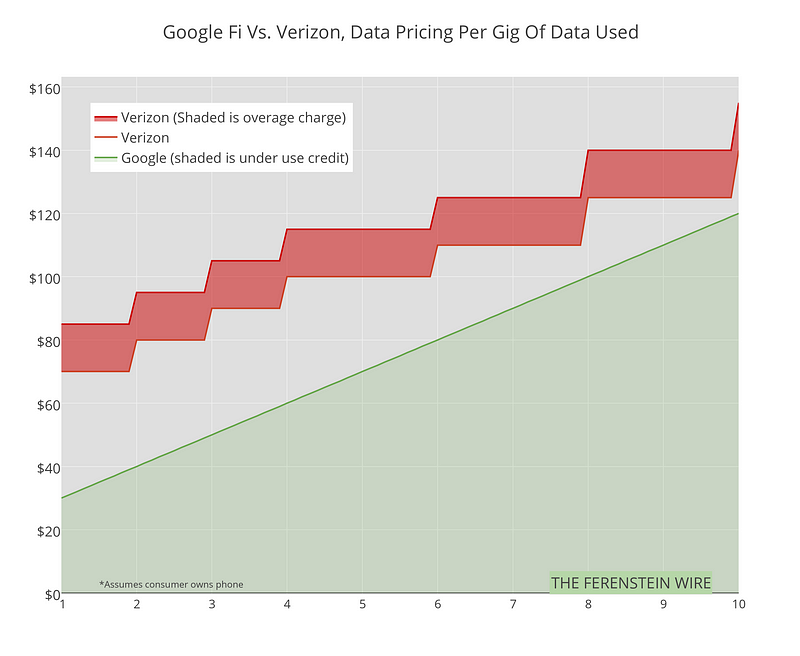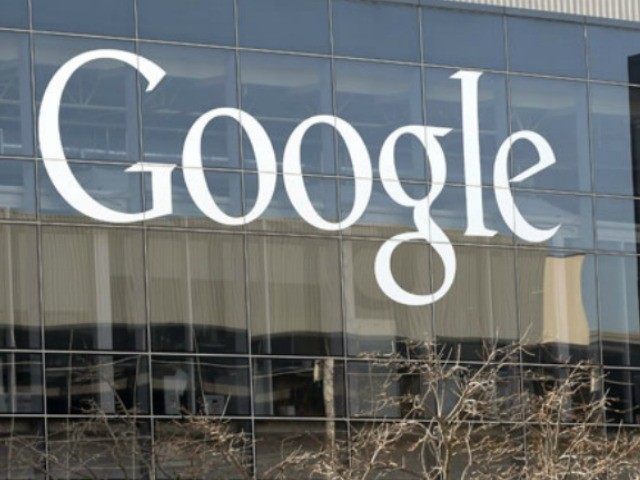
Google unveiled an ambitious new plan to take on wireless carriers, with the launch of its own calling and data service, Project Fi. Americans are demanding a faster mobile experience, and Google CEO Larry Page is reportedly frustrated that AT&T and Verizon just have not been interested in building better infrastructure. So he launched his own wireless service — with a twist.
Google’s pricing plans seems like a clever math trick to align profits with the incentive to build out more data infrastructure so that carriers are properly incentivized to keep up with demand. Under Google’s pricing, wireless carriers only make money when consumers use data because consumers are charged exactly for what they use. If a consumer has a $60 6 gig data plan and only uses 5.5 gigs, they only pay $55 for the data.
The math trick is to increase price linearly with data use.
Unlike most wireless carriers, Google makes most of its money when consumers actually browse the web. AT&T, Verizon, and Sprint profit when users pay for data they never use, or accidentally go over their rate allowance.
The upshot is that most wireless carriers have these tricky pricing plans of hidden fees, overage charges, complicated contracts, and odd incremental upgrades. ( AT&T, for instance, has a 6 gig and a 15 gig plan — nothing in between.)
In some instances, these companies benefit from users who consume less data, since they charge more per gig for low rate plans (illustrated in the bottom left side of the graph above).
In other words, these companies are not set up to build out infrastructure and keep up with increasing demand. This odd business strategy reportedly irks Google. The Information’s Amir Efrati reported:
For Google, a mobile offering would fit neatly into CEO Larry Page’s playbook. He hasn’t been shy about discussing with subordinates his disdain for existing wireless carriers and telecom companies who[m] he believes have been much too slow to upgrade their networks and heavy-handed in trying to control the services that subscribers use on their devices.
So Google is offering monthly data plans: $20 unlimited text/talk and $1 per 0.1 gig of data. (Two gigs of data will cost a total of $40.) They partnered with both Sprint and T-Mobile so phones can effortlessly switch to whatever network is best in a given area. Under this grand scheme, there is no incentive to lock users to a single wireless network or come up with psychologically tricky plans.
If a consumer uses more data, the carrier has a simple incentive to build out faster and more reliable capacity. It is ambitious in its simplicity. And, if it works, America will catch up to the rest of the world with faster, cheaper mobile broadband.

COMMENTS
Please let us know if you're having issues with commenting.